A large contingent of NHL executives made the trip out to China this week to announce the league’s first initiatives in the country: preseason games between the LA Kings and the Vancouver Canucks in Shanghai (Sept 21) and Beijing (Sept 23), kicking off an eight-year slate of games, which could be upgraded to regular season match-ups as early as 2018. Let’s take a look at some of the factors that might help the NHL in China, as well as the obstacles that lie ahead.
Why hockey will make it in China
1) The timing is right. With less than five years to go to the 2022 Olympics, the government is making a serious push to develop winter sports, and it’s no accident that Chinese President Xi Jinping has been featured in very lengthy segments on the national nightly news touring Olympic venues on more than one occasion this year. As I told the Globe and Mail after the announcement was made, there are actually a lot of indications that the government is moving away from soccer at the moment, and making winter sports its No. 1 priority within the sports industry.
2) Changing demographics coupled with maturing social trends in China are seeing more and more parents choosing to push their kids into sport, rather than force them to study after hours. In partnership with the government push to develop sport (see point 1), it’s a potentially explosive combination. Granted, these social changes are not specific to hockey, but hockey can certainly ride the wave as long as it lasts. 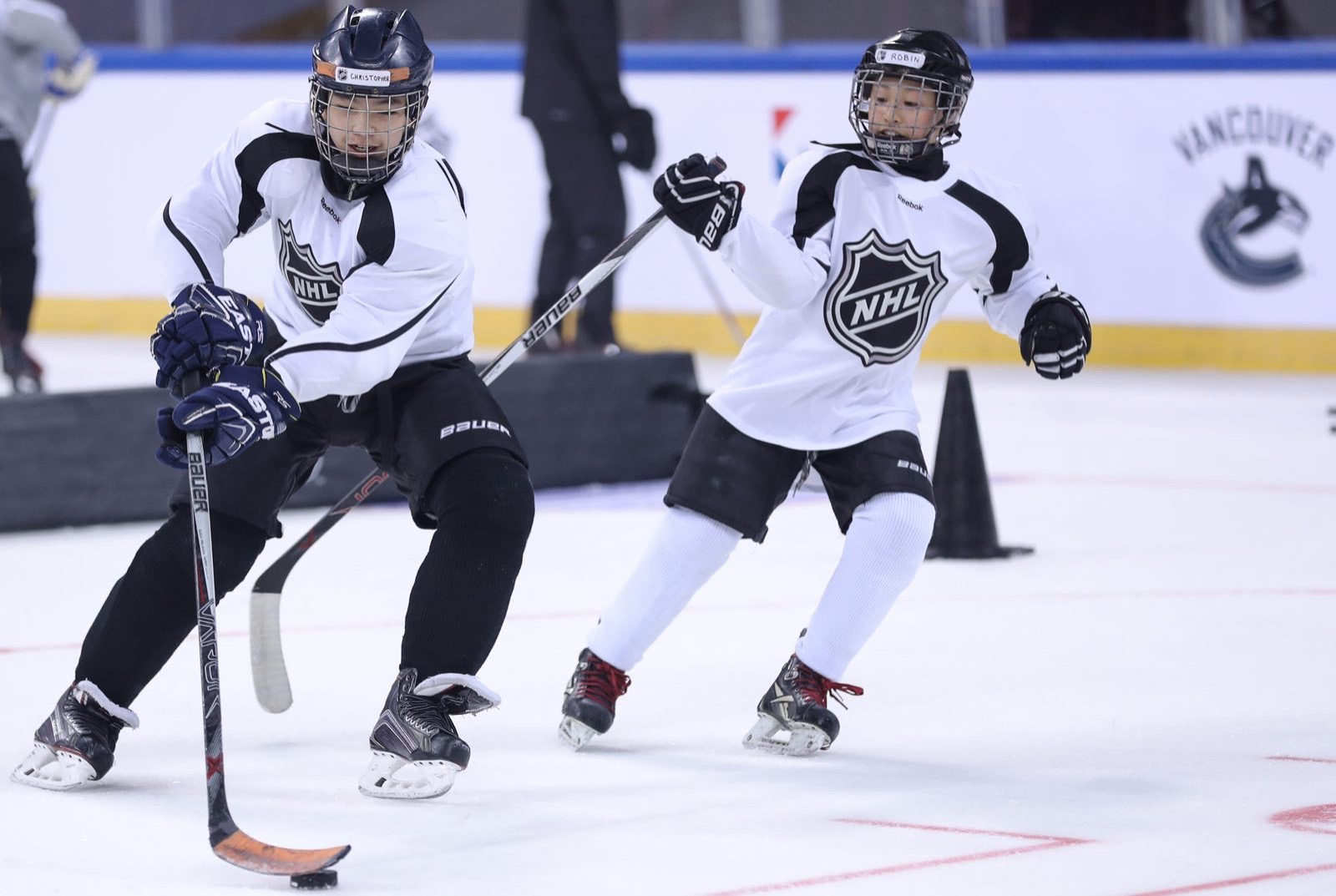
3) Hockey is an expensive sport – it requires far more equipment than most others, plus there are rink costs and travel fees that balloon the better you become – but money is not something that the Chinese middle class lacks. For the early adopters, it also opens up a potential new route to a prized college education in the US, with universities keen, perhaps, to give places – or even scholarships – to a new breed of sporty Chinese students.
4) The league’s top management does seem to grasp the magnitude of the challenge ahead for the NHL in China. All the right things were said on Thursday about this being a long-term project with grassroots initiatives becoming an essential part of supporting the professional game, and youth team players from Beijing put on an impressive clinic following the press conference. But to announce an eight-year commitment to playing games goes much further than simply dipping a toe in the water and there’s no other way to win over Chinese fans without a concerted effort over a number of years.
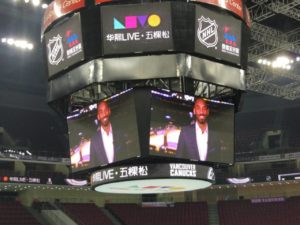
5) It’s a great game! Full disclosure: I’m half-Canadian so although I didn’t grow up in the UK playing the sport, it’s definitely in my blood (somewhere). Of course, it’s never really been able to compete with the Big 3 sports south of the Canadian border, but in China those rivals could actually become allies. For example, the Kings used messages from David Beckham and Kobe Bryant (pictured above) in their promotional video, and whereas US sports fans tend to be tribal about their preferences, there’s no reason why basketball/soccer/football fans in China can’t also embrace hockey as another US/western sport. In other words, the sport is also selling itself as another part of “western culture”, and from Hollywood to fashion and everything in between, that’s something that has sold pretty well in China in the past.
And why it won’t
1) Arguably, the Olympics are coming too soon for China, at least as far as hockey is concerned. China’s most competitive age groups are around the U14 level, after which the talent and player numbers fall off a cliff. That means that China’s best players will be U19 in 2022, which isn’t nearly old enough to hold your own against some of the best professional players in the world. China has a very successful Olympic pedigree, at least on the Summer side, and Chinese fans may not be so understanding about why their hockey players can’t compete.
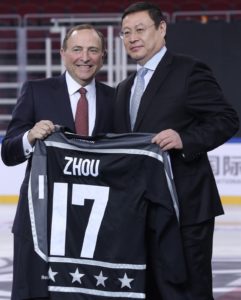
2) NHL Commissioner Gary Bettman has said repeatedly that the league won’t let its players go to Korea next year for the 2018 Games, even though NHL sources privately say a deal will somehow get done. But if the league does decide to sit out an Olympics before – presumably – returning in 2022, that won’t play at all well with a Chinese audience. The Olympics are always popular here, and with the push towards 2022 now in full flow, Chinese broadcasters will be giving Pyeongchang – just one hour ahead of Beijing – the amount of coverage usually reserved for a Summer Olympics. It’s a golden chance to try to showcase the game’s stars in an untapped market.
3) On the whole, the NHL in China on Thursday said all the right things. But the official press release did still trot out the mythical number about how “China is committed to expanding its participation in winter sports to upwards of 300 million people over the next five years”. That’s simply not true. The 300 million was originally intended to refer to the population of northeastern China, the country’s winter sports hub, but was conveniently allowed to be misinterpreted as China sought to convince the IOC to hand them the Games. The official number of registered hockey players in China is just over 1,000, so the league may need to drastically readjust its expectations about the potential of China’s market.
4) What happens after the Olympics is anyone’s guess, but the NHL in China will be hoping that it doesn’t see a repeat of Nagano in 1998, before which it also organized several NHL games in Japan before, in the words of Bettman, “they ripped the ice plant out of the building the day after the Olympic tournament was over”. China’s team will not have starred in the Olympics (see point 1 above), and may not even have qualified, so there is a real danger that the momentum dies before any legitimate, homegrown Chinese players are able to mature.
5) It’s 2017 and the NHL has only just arrived. The Washington Bullets first came to China way back in 1979, but the NBA has played preseason games here since 2004. Meanwhile, the NFL first landed in the run-up to the 2008 Olympics, and while its initial plans to conquer China didn’t go according to plan, it has had a constant presence here in China for a long time. Plenty of other sports and leagues have established themselves in China, or are trying to do so, and they all have the same goal: persuading China’s youth that their product is better than all the others.
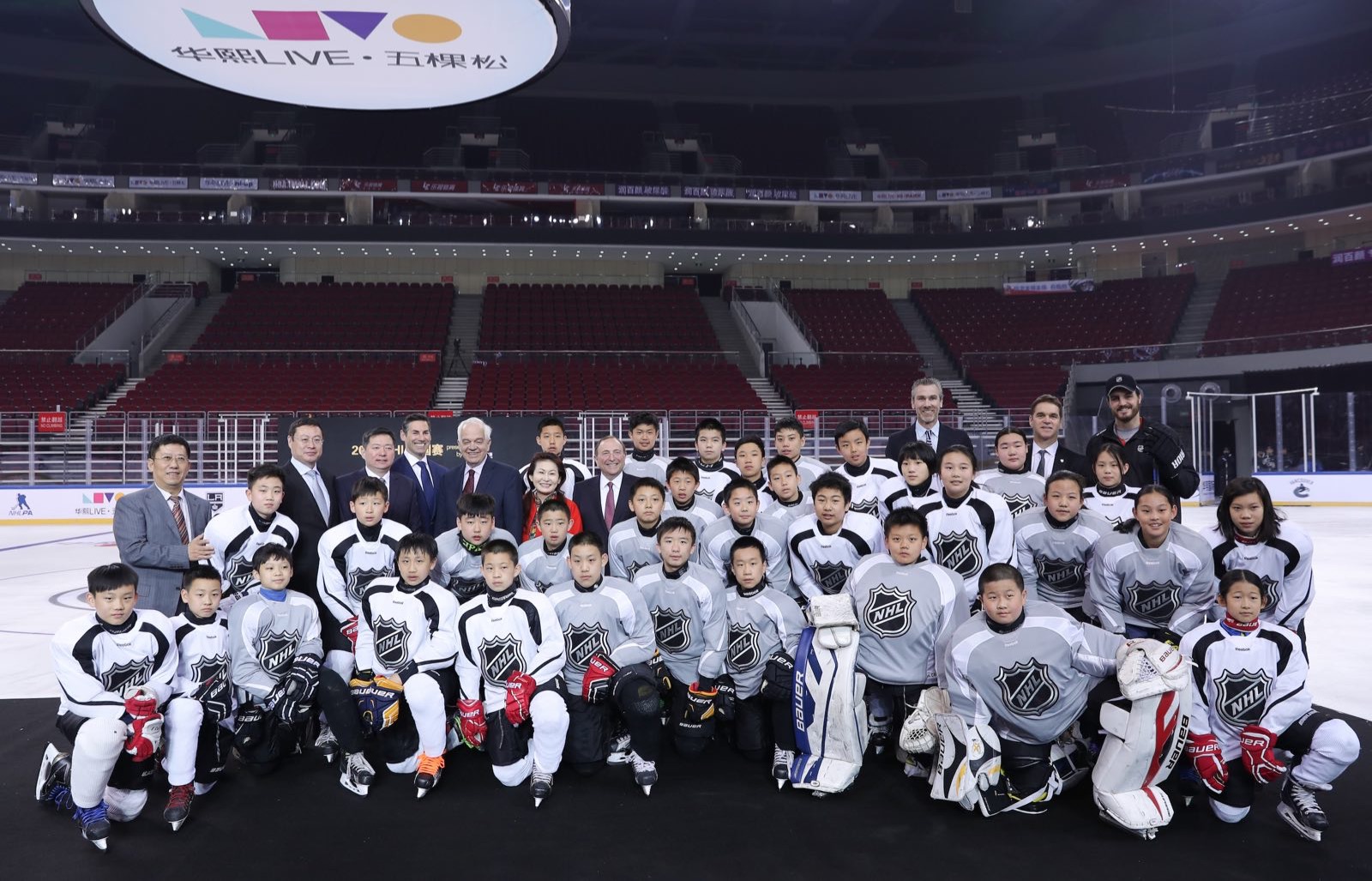
So which one is it?
It’s a crowded market with some very strong and established competition and the NHL is late to the game. But those first two reasons listed above – namely, the government-led winter sports drive and the more organic shift towards playing sports – are pretty compelling factors. As long as the league is willing to commit some serious dollars to the project over the long haul and doesn’t expect to even start thinking about making money until well after the Olympics have finished, then there’s a chance to carve out a niche for the NHL in China, which, of course, means the league could have a significant part of its global fan base here.
A lot can change in the future, but the fact that the league is coming in with an eight-year time frame as its initial term is a good sign. It may be a new game to many here, but the league seems to have made a good, professional first impression. Like a boyfriend trying to impress a girl’s father, it’s a start, but there’s still a long, long way to go before he walks her down the aisle.

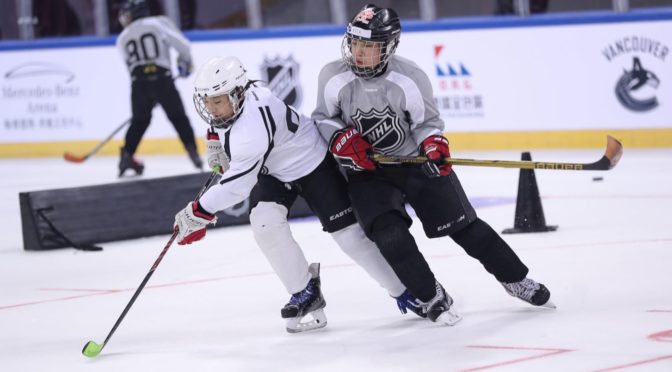

You have obviously not attended any RedStar games in BJ or SH to see how pathetically small the amount of fans is, including that most fans are expats? The arrogant NHL execs were at those games too and saw the reality, but like the NFL, live in a myopic echo-chamber castle. Alongside disrespecting the KHL, the NHL doesn’t see how even people in the northeast, outside of QIchahar and a few other areas, are ambivalent about ice hockey. And the VanKe and RedStar women’s teams in Shenzhen have no fan base, no support, and play far from the city center. Good luck with that for building fan support, although player development will certainly be aided.
BJ and SH are very different situations. I went to several Red Star games in Beijing last season, including the home opener and the playoffs and the crowds were decent if not spectacular, with plenty of locals – totally different from the empty Feiyang arena in SH. Different atmospheres for the two NHL games would also back that up. But it’s a horrendous decision to play all year in SH, as I’ve written elsewhere, with the KRS average crowd now the lowest in the league – and even less than Jilin gets in the VHL!
I agree that the Shenzhen teams will struggle to draw fans – though they told me they are specifically targeting expats, which seems like a very short-sighted strategy. Given that they are part of the KRS franchise, I don’t think you can say the KHL is doing better than the NHL at the moment! NHL start in China was mixed – some good, some bad – but it will be very interesting to see how they try to follow it up.